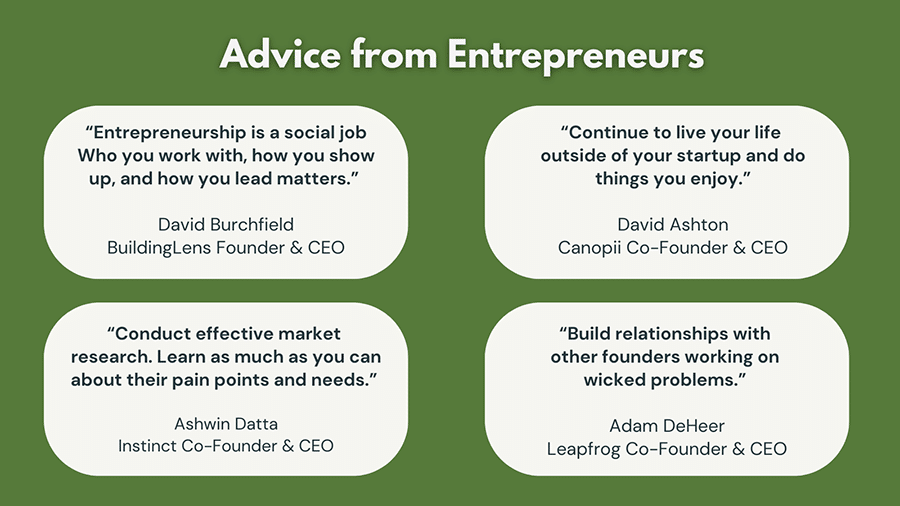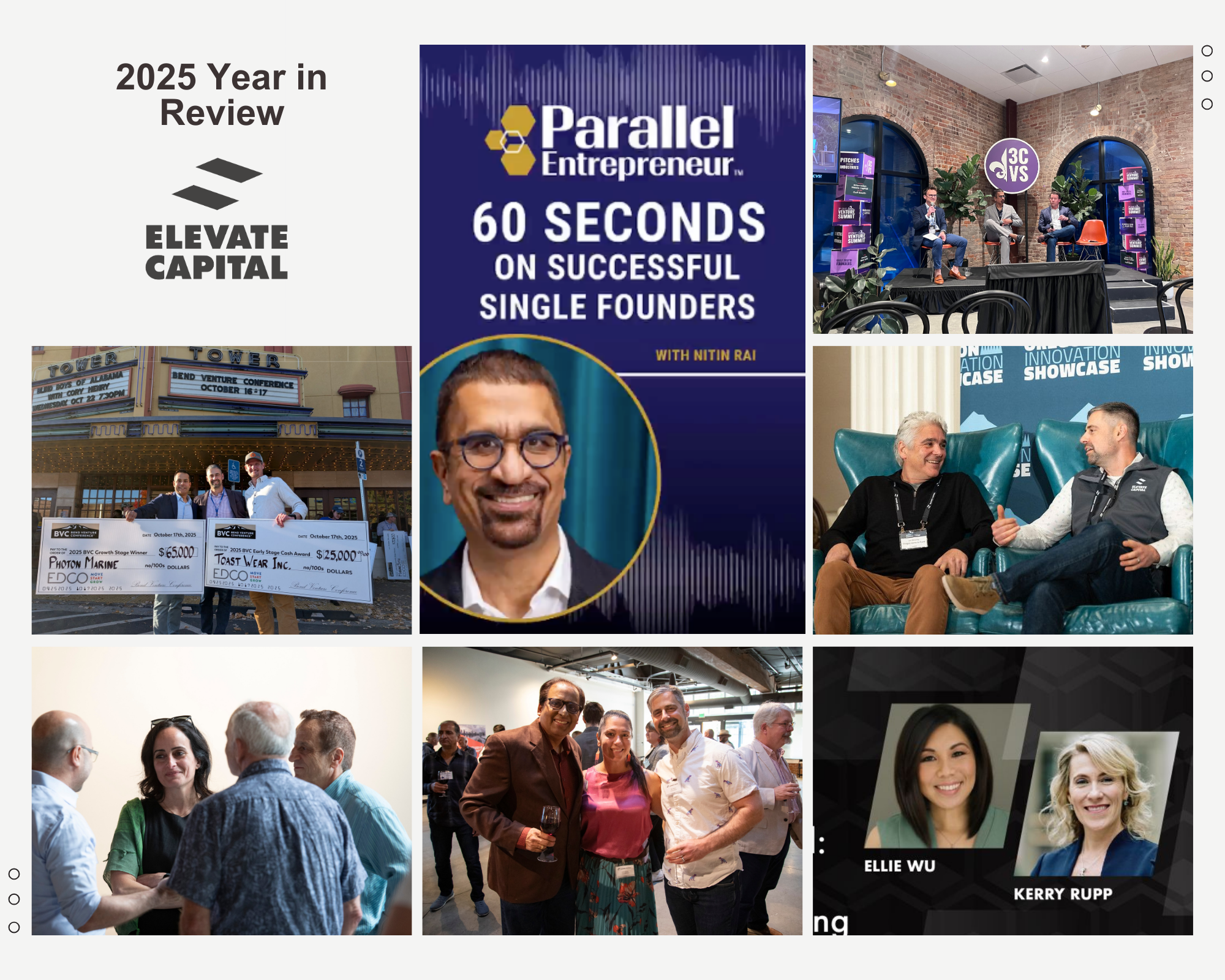Earth Day reminds us of how fragile our planet is. It’s a time to reflect on our environmental impact and take action toward sustainable living.
“Caring for Earth is not limited to just one day; it’s a continuous commitment to preserving our planet’s ecosystems for future generations,” said Nitin Rai, Elevate Capital Founder and Managing Partner. “Elevate Capital invests in many green initiative companies, prioritizing cleantech, sustainability, and natural resources.”
This blog will spotlight four Oregon companies dedicated to improving our planet. The founders of these companies will share their motivations for starting their ventures, the challenges they encounter, and how they overcome these obstacles, and they will offer advice on maintaining the entrepreneurial spirit and drive.
BuildingLens: Transforming Buildings with Energy-Efficient AI-Driven Resources
BuildingLens is an enterprise software platform for small and medium-sized buildings (SMBs). The company helps SMBs manage energy and resources, making buildings more efficient, cutting facility-related costs, and reducing the environmental impact to pave the way for a sustainable future.
Below, David Burchfield, Founder and CEO of BuildingLens, shares his story.
What inspired you to start BuildingLens?
I started BuildingLens to close a critical gap in the clean energy economy. Smaller buildings and underserved communities have historically lacked access to the tools and insights needed for healthy, efficient spaces.
With BuildingLens, we built an affordable, AI-driven platform that transforms buildings into smart, grid-responsive assets. It’s about creating energy-efficient, clean indoor air and making energy resources accessible to everyone, not just large institutions.
What are some of the biggest challenges you’ve faced during the past two years, and how did you overcome them?
One major challenge has been helping utilities serve small buildings more cost-effectively. We addressed this by designing a platform that lowers outreach costs by up to 75% while doubling avoided energy use.
Another was proving our model. We did that through real projects like Agape Homes, delivering measurable cost savings and healthier indoor air for low-income families. These wins validated our value to both utilities and communities.
What advice would you give other entrepreneurs?
Know that you’re an entrepreneur and that entrepreneurship is a social job. Who you work with, how you show up, and how you lead matters. Surround yourself with people who reflect your values, and never compromise those values, even under pressure.
At the end of the day, the buck stops with you. You’ll live with the outcome, win or lose. Integrity, clarity, and relationships will define your journey far more than a product ever will.
Canopii: Fostering a Sustainable and Varied Agricultural Ecosystem
Canopii’s modern, fully automated, controlled environment grow technology optimizes every step from seed to harvest. Its proprietary greenhouse system enables farmers to scale growth with minimal labor costs while prioritizing sustainability.
Below, David Ashton, Founder and CEO of Canopii, shares his story.
What inspired you to start Canopii?
I have always had an itch to start a company. The desire stems from the challenge and the freedom to pursue a passion that running a startup offers.
What are some of the biggest challenges you’ve faced during the past two years, and how did you overcome them?
The biggest challenges are the constant ups and downs. Whether securing a pilot agreement with a customer or being ghosted, receiving a grant or facing rejection, getting a quick yes for an investment, or being dragged through due diligence for months to end up with a no. The ups and downs are inevitable.
The best solution is to maintain perspective. In many ways, being an entrepreneur is a privilege. Having the ability to quit your day job, accept a reduced income, and pursue a passion is not something most people can afford to do.
What advice would you give other entrepreneurs?
Find a co-founder. Starting a company is a long journey, and having someone equally committed to the mission and company as you will make a huge impact.
Finding the right person who complements your skillset and convincing them to quit their job is a necessary litmus test before starting a company. Along the same lines, find mentors with relevant and valid credentials and invest your time in those relationships.
Continue to live your life outside of your startup and do things you enjoy. For me, regret comes from missed opportunities and experiences.

Instinct: Automating the World’s First Satellite-Enabled Wildlife Acoustic Monitoring System
Instinct is the world’s first automated real-time, edge-computing, satellite-enabled acoustic monitoring device. Instinct’s device automates wildlife surveying, listening for over 6,500 species of interest, processing the data, and providing timely notification no matter how remote the survey site may be.
Below, Ashwin Datta, Co-Founder and CEO of Instinct, shares his story.
What inspired you to start Instinct?
Born and raised in Oregon, I have always been interested in forestry. Since early childhood, I’ve spent countless hours recreating in the mountains and forests of Northern Oregon.
Despite attending college on the opposite side of the country, I knew I wanted to use my skills and what I had learned to make an impact back at home, improving forestry and conservation. Bringing remote sensing, monitoring, and embedded systems into the forestry space was a natural fit.
What are some of the biggest challenges you’ve faced during the past two years, and how did you overcome them?
Over the past two years, we underwent a significant pivot. We initially focused on wildfire monitoring and detection using ground-based and tree-mounted sensors. While we built a robust product, vision-based solutions (camera and satellite) won in the space, and our approach was difficult to fit in.
At the same time, we learned more about the extreme shortcomings and challenges with wildlife monitoring and surveying and felt that we could make a difference and solve salient pain points there.
The pivot was difficult. We had limited funding and felt like we were starting over again. We had to run extremely lean and focus on our limited resources. We carefully listened to potential customers and users about what they needed. And we had to work really hard on our product and business development—there’s no shortcut or substitute for that.
So far, our efforts have paid off! In April 2024, we launched the world’s first satellite-enabled, real-time automated wildlife surveying system and sold and deployed 25 stations across Oregon and California. One year later, we launched the ASU 2, which has sold 100 units this year.
What advice would you give other entrepreneurs?
The biggest advice is to conduct effective market research. Interview a large number of potential customers and listen to them carefully. Learn as much as you can about their pain points and needs. Know which pieces of information are important and which may be misleading.
Doing this will enable you not to waste time and resources building the wrong solutions. You can focus then on delivering strong value propositions that will help you get results in the most efficient way possible.
Most importantly, remember to set boundaries and maintain a well-balanced life outside of work. The entrepreneurial journey is typically lengthy, and it is all too easy to get burned out. Finally, remember to have fun.
Leapfrog Design: Creating a Sustainable and Scalable Residential Plant-Powered Ecological Recycling System
Leapfrog Design develops a sustainable and scalable residential plant-powered ecological recycling system that reuses greywater collected for treatment from laundry, sinks, baths, and showers. The cleaned water is used for non-potable reuse in toilet flushing, irrigation, and other select applications.
Below, Adam DeHeer, Co-Founder and CEO of Leapfrog Design, shares his story.
What inspired you to start Leapfrog Design?
While in graduate school at the University of Oregon for landscape architecture, I was introduced to a problem whose scale I hadn’t fully comprehended. I had long focused on pollution, species loss, and the erosion of ecological networks. Still, I had no idea how badly we failed to provide adequate sanitation for all our members.
In fact, diarrheal disease caused by exposure to untreated wastewater is a leading cause of death for children under the age of five. I asked myself: How can we use natural systems to help save these children?
With this question in mind, I began multiple years of co-designing a solution with communities living in informal settlements, often referred to as slums, in the peri-urban fringe of Lima, Peru.
What are some of the biggest challenges you’ve faced during the past two years, and how did you overcome them?
Bringing a social benefit, a Greentech hardware product to market that prioritizes solving a global health crisis rather than maximizing shareholder returns, has presented numerous challenges.
We’ve been undercapitalized throughout our existence, with Elevate Capital being one of the few investors who stood behind their investment thesis.
Due to difficulties raising private investment, we’ve relied almost exclusively on federal and state research grants and commercialization awards. We’ve remained scrappy, often underpaying ourselves while building partnerships with larger strategic partners to cross the “valley of death.” We’ve weathered multiple pivots, hiring and staffing changes, and benefited from excellent advisors, including the team at Elevate Capital.
Through it all, we’ve let our vision and mission lead the way, refusing to give up even when attempting the seemingly impossible: relying on capitalism to solve global sanitation.
Self-doubt is inevitable when pioneering something new, especially when progress feels slower than anticipated. A good antidote is to build relationships with other founders working on wicked problems. We know how hard it is and help reassure each other that we are doing meaningful work while grappling with the ambivalence of using a profit-driven system to do altruistic work.
What advice would you give other entrepreneurs?
Know your “why.” If your motivation is wealth, I hope that’s meaningful enough to sustain you. If it’s something else, hold onto that reason tightly; it may be the only thing that keeps you going during the hard times, which will constitute most of your journey.
NOTE: Leapfrog Design rebranded in late 2025 as Waterleaf, aligning its identity more deeply with regenerative, sustainable design.



